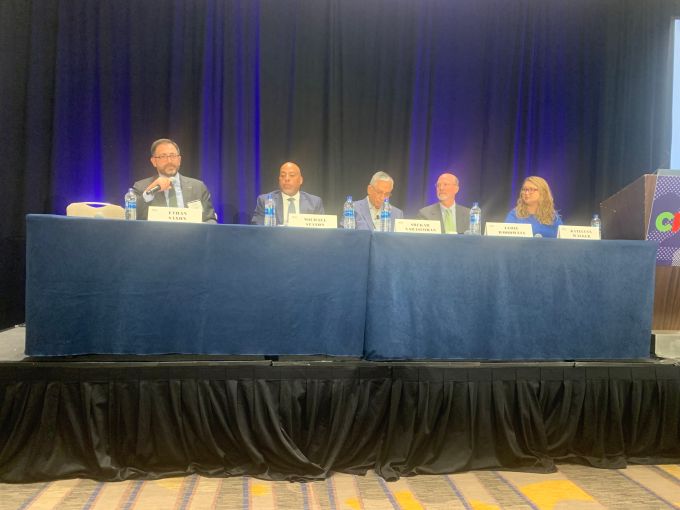MBA CREF 22: Affordable Housing Solutions Needed in CRE
By Andrew Coen February 15, 2022 5:43 pm
reprints
With only so many low-income housing tax credits (LIHTC) to go around, more innovative solutions will be necessary to truly make a dent in combating the nation’s affordable housing challenges.
That was the consensus during Tuesday morning’s “Affordable Multifamily Housing: An Environmental Scan” session held at the Mortgage Bankers Association‘s (MBA) CREF 2022 in San Diego. Michael Staton, a senior mortgage originator at CPC Mortgage Company, noted that states are limited in how many LIHTCs they receive by their population size.
Station said the program, which provides a 9 percent tax credit or 70 percent subsidy for new affordable housing construction or substantial rehabilitation, has helped improve multifamily supply, but more outside-the-box ideas should be brought to the table to create further strides.
“I’ve seen particularly in major cities some wonderful schools converted into affordable housing, some beautiful churches converted to affordable housing, some old factories that have just been blights in cities and they’ve been converted,” Staton said of some of the creative ways municipalities are trying to address affordable housing in concert with the private sector. “We need to preserve our existing housing stock and with any of those vacant buildings, put some resources through private and public sectors and convert those to affordable housing, mixed-income, mixed-use and make a community.”
The panel also included Jamie Woodwell, vice president of the commercial and multifamily group, research and economics at MBA; Ethan Saxon, the MBA’s associate vice president of legislative affairs; and Shekar Narasimhan, managing partner of Beekman Advisors. Katelynn Harris Walker, associate director of affordable housing with MBA, moderated the discussion.
Narasimhan noted that the U.S. has failed to truly innovate when it comes to affordable housing over the past half century while other countries are aggressively finding ways to produce more multifamily properties in less time while also lowering construction costs. He said that lenders have however found successes with financing affordable housing over the years and can be part of addressing the solution.
“The low-income housing tax credit has proven that affordable housing can be the most profitable business you can do as a lender and the safest business you can do as a lender,” Narasimhan said. “Most funds that have tax credit-financed housing have experienced two or three delinquencies over 35 years. So you can think of something safer to do and more important to do and that you can make real money doing, why aren’t we integrating finance to do more?”
Fannie Mae and Freddie Mac will be doing their part on the government-sponsored enterprise side in trying to boost affordable housing projects in 2022 after the Federal Housing Finance Agency (FHFA) announced last fall that lending caps would be $78 billion for each entity this year compared with $70 billion in 2021. FHFA requires that at least 50 percent of its multifamily business be comprised of “mission-driven” affordable housing with a minimum of 25 percent geared toward residents at or below 60 percent of area median income, up from 20 percent in 2021.
Leanne Spies, senior vice president of asset management and operations at Freddie Mac Multifamily, and Michele Evans, executive vice president and head of multifamily at Fannie Mae Multifamily, both said Tuesday at MBA CREF they are committed to enhancing affordability in the marketplace. The two government sponsored enterprises leaders spoke on panel, “All in the Multifamily: Conversation with GSE Leadership,” which also featured Kelli Carhart, head of multifamily debt production at CBRE; Phyllis Klein, head of agency production at Capital One (COF) Commercial Real Estate; and Chad Musgrove, associate director of originations at Lument. Amber Rao, senior mortgage banker at KeyBank, moderated.
“Our adjustments are going to be more on the affordability side,” Spies said. “Affordability has always been our mission and always been in our sweet spot. It’s going to be even more so this year.”
Andrew Coen can be reached at acoen@commercialobserver.com.


